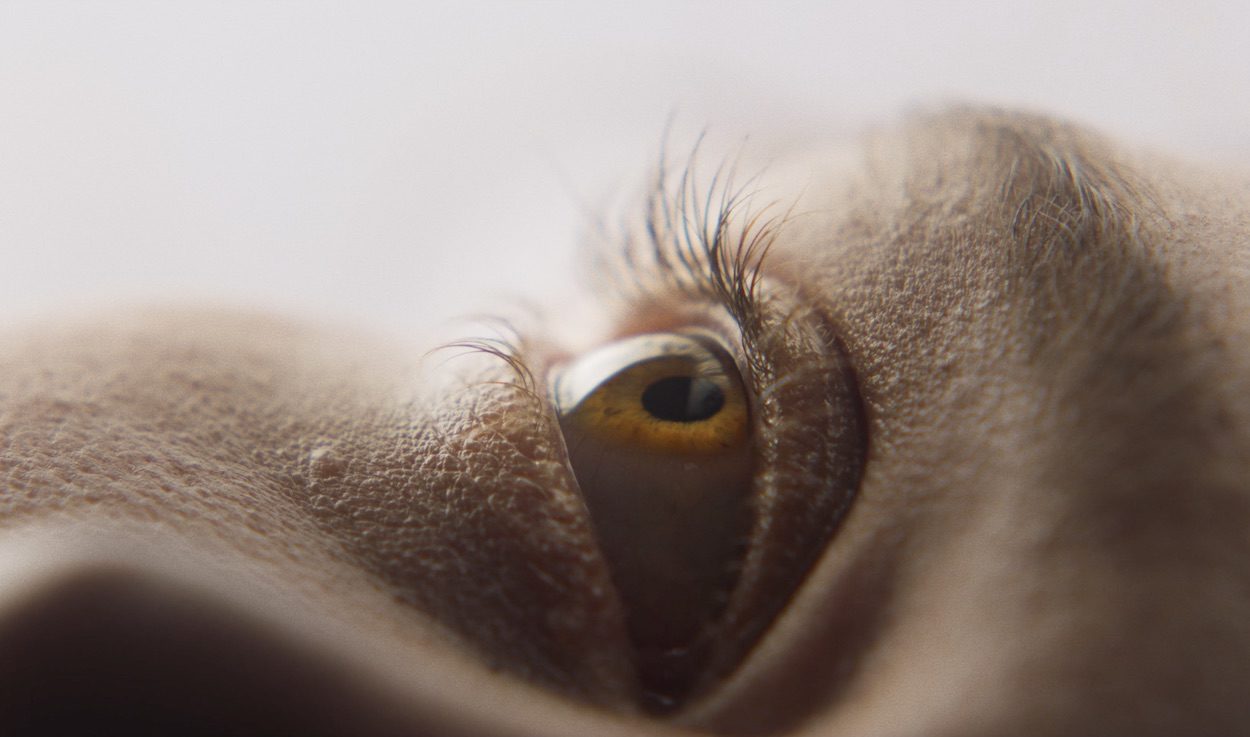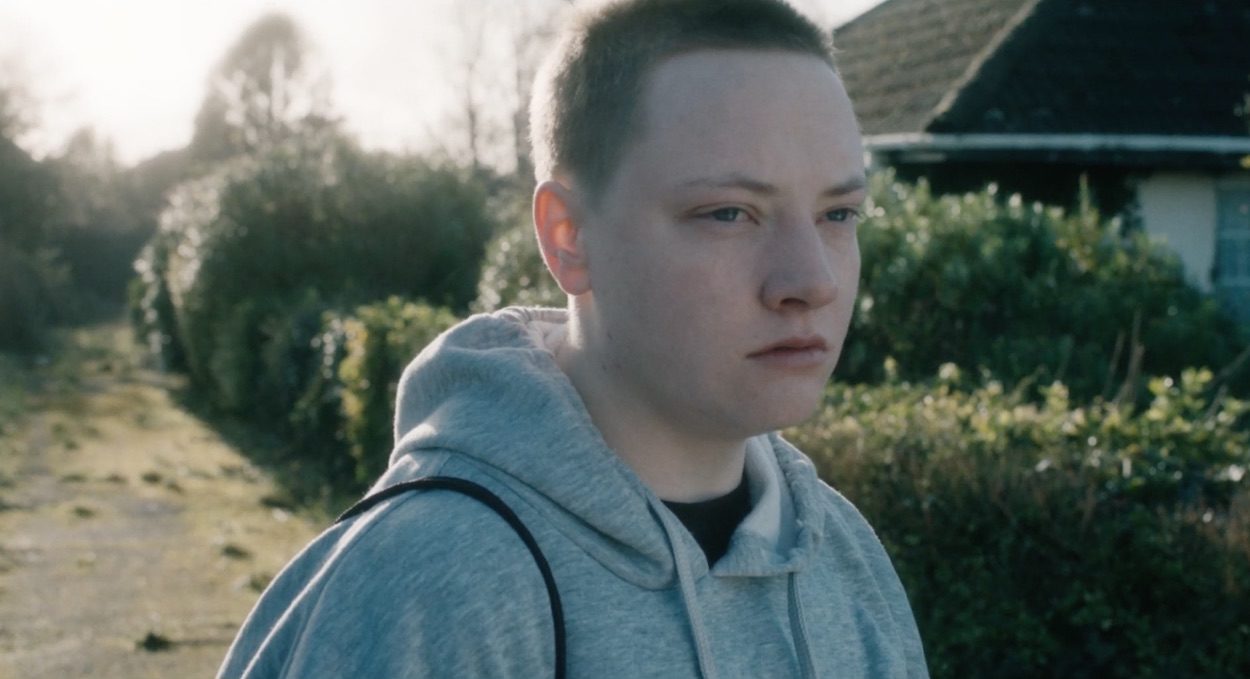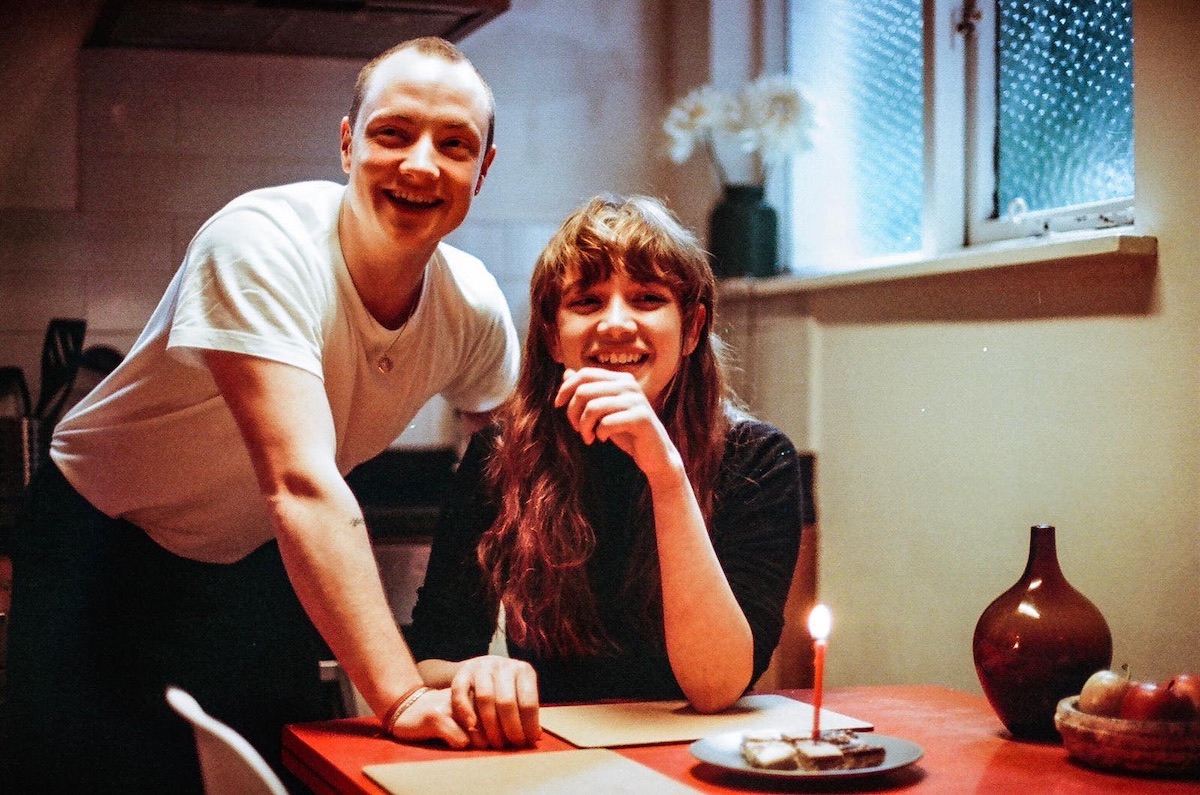Jesse what was behind your decision to adapt Neil Hilborn’s poem OCD into a short film?
I think love is the most universal subject in storytelling. Love is a deep-rooted feeling that everyone experiences in one way or another during their life and so to hear a poem that described loved in all its glory and all its pain so succinctly, grabbed me from the first second and exploded my mind with visual and sound-related ideas.
Up Close in Eyelash, Ishtar Currie-Wilson and Elijah Harris
How did you go about writing the visual narrative to the script – did it flow quite rapidly or was it a more arduous storyboarding process?
To be honest, it was a fairly quick process in the prep phase. Other factors outside of the creative meant I didn’t have too much time anyway, but from the first time I heard the poem I had a clear idea of how my own personal experience of it would translate to a more visual piece and so because of time and budget restraints I just had to trust that process rather than sit on it too much.
You have developed a film language through the framing, sound effects and editing that heightens the emotional development of the performances. We note that you edited the film as well – did the narrative evolve considerably as you edited?
As a director you always want to control the process as much as you can to bring your ideas to life as close as possible to the ideas in your head. Most of the time an editor can give you clarity that you would never be able to see as a director as you can become too attached to the material. However in this case it was the combination of literally not being able to pay an editor to work on the film and also with the poem itself dictating the rhythm, I felt a lot of my so called ‘direction’ came from the specifics of the edit itself.
Where did you learn your filmmaking skills?
It’s quite hard to specify where you acquire your filmmaking abilities from; I even cringe slightly writing the word ‘abilities’. I think just learning from loving films and what you emotionally respond to will always inform how you approach your own work.
Eyelash extends your collaborative relationship with actor Elijah Harris following your graduation film Bleach which powerfully reveals the complicated family relationships when a child decides to trans-gender. What is your method for directing with Elijah to get these heart-wrenching performances?
When it comes to Elijah I think it’s little to do with what I myself can tell you, Elijah is an incredible actor that understands story and empathy on a level that many don’t. As a director it’s a dream to work with someone like him who can take the material and run with it in ways you could never imagine.
Elijah Harris and Ishtar Currie-Wilson
Are there plans to collaborate on more projects together?
I would love to work with Elijah again and again, I do have plans for that to become a reality.
What draws you to empathise with these marginalised voices and to express that understanding through film?
I think you have to always tap into what moves you emotionally. You say ‘marginalised voices’ but I also see topics and themes that are universal and everyone can read into. As a filmmaker you want to champion voices that may not be part of the mainstream but have a world of material emotional weight that can really move people. That for me is all you can ask from a film, something that makes you think about the world in maybe a different way. And so I just try to be inspired by what moves me emotionally, whether it be a poem or a political or social issue, it’s all part of tapping into something undeniably human.
Jesse Lewis-Reece is represented by YOU ARE HERE


















